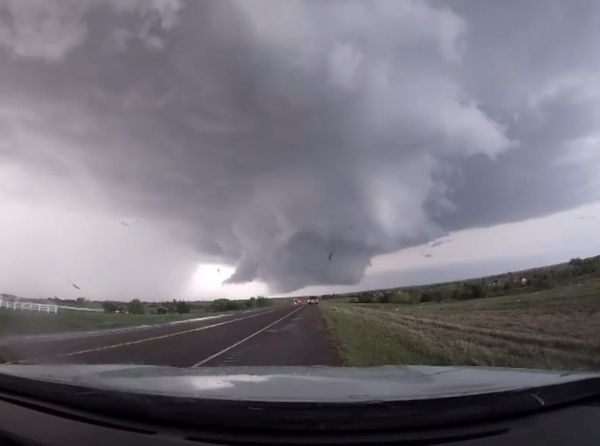Opening this novel, Jessi Jezewska Stevens' second, you encounter what look like computer terminal commands on solid black rectangles — and that I didn't even know what to call this probably says more about me than about the book, but still ... be prepared to shrug it off, along with subsequent similar interventions, and get on with the story, assuming that it will all eventually make sense.
It sort of does. The novel, in its way, is about the disintegration of a character (known, logically enough, as C), within the breakdown of society, framed by an eco-hacktivist attack on the national electrical grid. It takes place in the time of Occupy Wall Street, as C, a onetime celebrated textile artist (i.e., a weaver), now the owner of an arts and craft shop, discovers a gnomelike "visitor" haunting her days, which are already haunted by a dissolved marriage, a hysterectomy, oppressive medical debt, a terrible pain that presages yet more medical debt, and news of that hactivist group (GoodNite) wreaking havoc.
Amid all the computer commands, aphorisms and assertions ("Retail is debt," for instance, or, "Why do we go out? To shout at the world, mainly — call it commerce, politics, art."), C is poignantly real, trying to negotiate the cruel financial and medical realities of everyday life while contending with what looks like — but is it? — an incipient romance with her lifelong friend Zo, a rich market analyst. That Zo is typically a lesbian (and, at the moment, contemplating her own romance with a man), and C is typically straight, complicates things further.
When Zo's point of view briefly supplants C's, we are treated to feverish lessons in the operation — or failure — of markets, which emerge from Zo's exchanges with her male perhaps-partner, the Professor, a brilliant or maybe crazy behaviorist, who says things like, "debt is the corpus and the grid is the heart that pumps the lifeblood in. No electricity, no data, no debt."
Or, more to the point (ha ha), "The market is ... a means of gathering intelligence. It is a process of discovery. It exists to consolidate the data of our world."
That C's hysterectomy, the beginning of her worst woes, coincided with the Crash of 2008 makes perfect sense within the web of debt, loss and looming disaster that ensnares her and enmeshes this small novel of outsize ideas, where a hovering little gnome with bare feet, a diaphanous body, glabrous protruding eyes, and a curious, expectant gaze might be a "spirit guide," a manifestation of C's "genius for displacing herself, embodying herself in other things," or, pathetically enough, "the perfect child ... doesn't eat, doesn't sleep ... is no burden at all."
"Is it possible to imagine something so fully that it takes on a life of its own? So many systems run only on belief." It's possible that a novel, like this one, does, too.
____
The Visitors
By: Jessi Jezewska Stevens.
Publisher: And Other Stories, 269 pages, $25.95.
____







